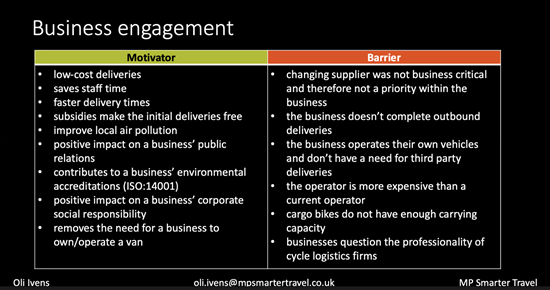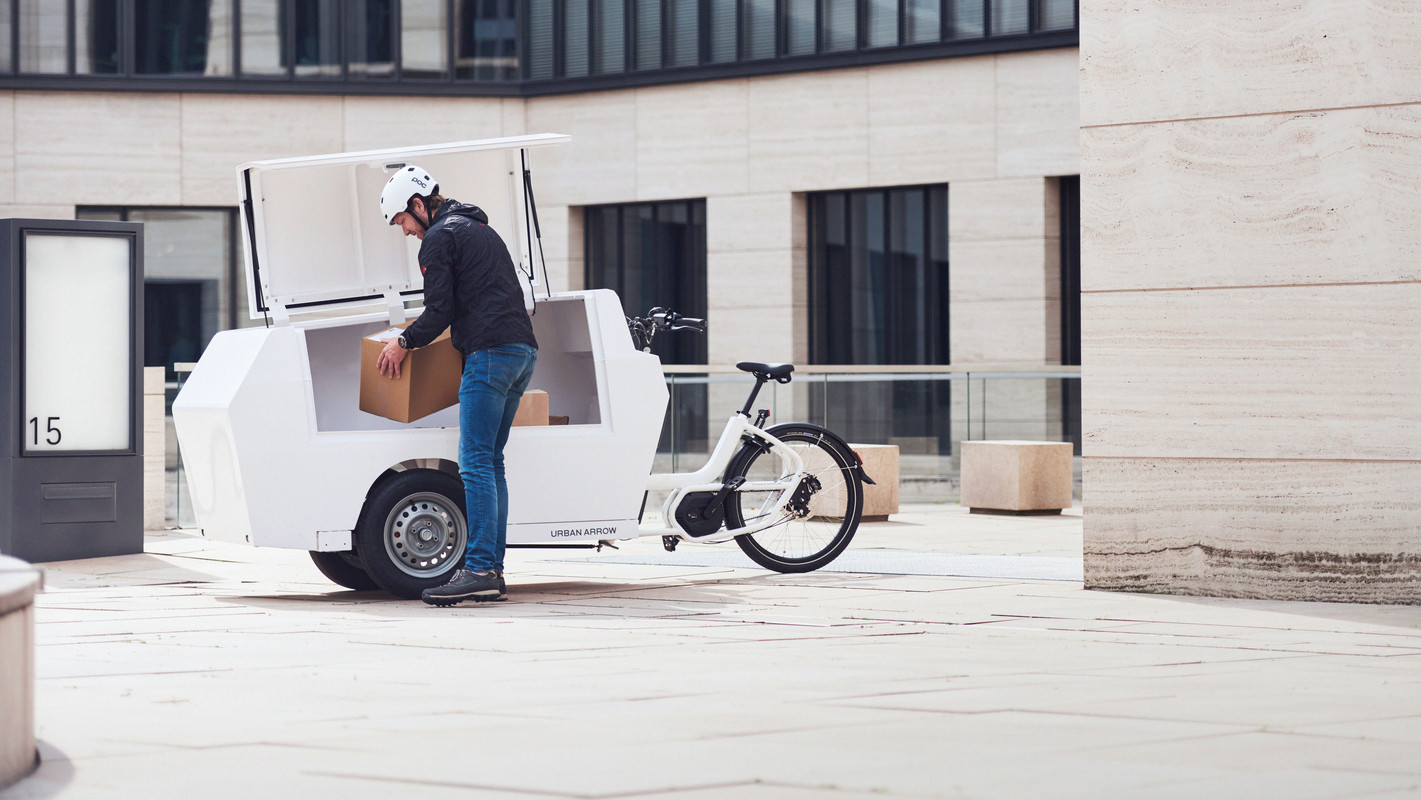On Friday the 25th of February, the European Cyclists’ Federation (ECF) organised a webinar to illustrate commercial applications for cargo bikes. Entitled “Cargo Bike Adoption for Businesses” the online event was organised as part of the City Changer Cargo Bike (CCCB) project.
With urbanisation and densification a global trend, cities the world over are facing a complex set of urban mobility challenges. These challenges are only expected to get worse as volumes of traffic caused by commercial delivery services and private trips increase.
Cargo bikes offer a unique solution to this problem and could substitute over half of logistics and a quarter of commercial deliveries in European cities. For example, in Central London, last-mile logistics are characterised by short driving distances with predominantly stationary vehicles that spend more time parking than driving. Cargo bikes bypass this as the ability to park them is considerable less difficult, and the disturbances to other road users minimal, all of which helps to reduce congestion and pollution. In addition, many cities around Europe have legislated Low Emission Zones (LEZ) for motorised vehicles in order to improve liveability of urban spaces and reduce pollution. Cargo bikes, which can circulate in these areas, can therefore increase business efficiency whilst contributing to more liveable and less polluted city centres.
The “Cargo Bike Adoption for Businesses” event was divided into three separate sessions which focussed on specific themes relative to cargo bike use in business applications. The first session focussed on “Cargo Bikes and Public Authorities”, which delved into why this business tool is being favoured by local governments around Europe, with specific examples given by Susan Rooke from Cambridgeshire County Council (CCCB Partner City) on how they have not only implemented regulations to promote cargo bike usage, but also how the Council itself has integrated cargo bikes into its operations.
The second session focussed on how businesses have integrated deliveries into their operations. Oli Ivens from the consultancy firm MP Smarter Travel gave a number of examples of how he has worked with a number of local businesses in the UK to make the shift to cargo bikes for their deliveries. He outlined a number of motivations and barriers that companies face when developing this capacity in-house.

The last session focussed on how cycle logistics as a sector itself has developed in recent years, with the focus being on how professionalizing cargo bike delivery was steadily changing the perceptions of businesses and customers towards the their use. Chris Dixon from Pedal Me emphasised this point by saying that cargo bikes allow goods to be delivered at precise and specific times as they’re not affected by traffic or parking issues as is the case with delivery vans, which has a significant impact on improved customer satisfaction and loyalty, key benefits for business.
The insights provided within the three sessions illustrates how cargo bikes can be an invaluable feature for businesses to help them grow and serve their customers better. In addition, the positive impacts of cargo bike use not only benefit business, but society more broadly, helping to cement cargo bikes as a indispensable urban delivery tool in the future of urban mobility.
Share on Linkedin Share on Facebook Share on Twitter Subscribe to our newsletter